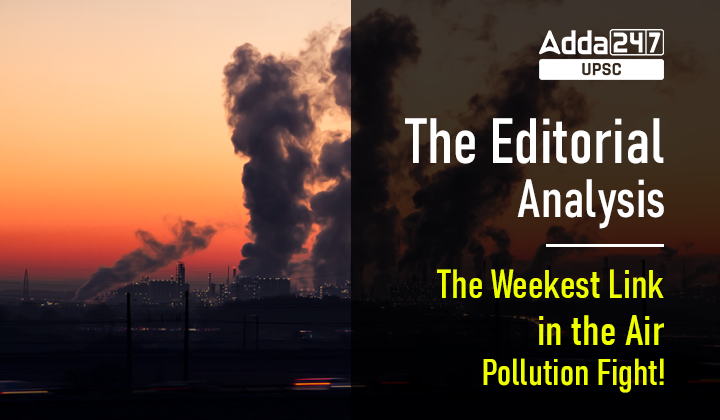Table of Contents
SPCBs: Relevance For UPSC
GS 3: Conservation, Environmental Pollution & Degradation, Statutory Bodies
SPCBs: Introduction
- India’s frontline environmental regulators, the State Pollution Control Boards (SPCBs), and the Pollution Control Committees (PCCs) in the Union Territories are not working as per their respective mandates.
- That is one of the biggest reasons that key environmental indicators worsening across India.
- Over the years, several reports that have been published, including those by the parliamentary standing committee and government committees, have identified reasons for the poor performance of the SPCBs.
- In a recently published series of papers by the Centre for Policy Research, we find that many of these reasons continue to afflict the SPCBs.
SPCBs: Has the enhanced mandate of SPCBs worked?
- The SPCBs was initially constituted under the Water (Prevention and Control of Pollution) Act, 1974.
- Under the Air (Prevention and Control of Pollution) Act, 1981, the SPCB mandate was expanded to include air quality management.
- Subsequently, several new environmental regulations added to their roles and functions.
- Unfortunately, this enhanced mandate has not been matched with increased capacity and capability in the Boards.
- As environmental indicators such as air quality and water quality worsen in many parts of the country, the Boards are evidently failing to effectively discharge their statutory mandate.
SPCBs: Key institutional constraints under which SPCBs Function
Unscientific SPCB Composition
- Important stakeholders and those with crucial expertise are missing in most States’ SPCBs.
- Boards are multi-member bodies headed by a chairperson and a member-secretary. Their decisions and policies guide the day-to-day functioning of the organisation.
- Over 50% of the Board members across the SPCBs and PCC represent potential polluters: local authorities, industries, and public sector corporations.
- At the same time, scientists, medical practitioners, and academics constitute only 7% of the Board members.
- Most Boards do not meet the statutory requirement of having at least two Board members who have knowledge of, and experience in, air quality management.
Unstable SPCB leadership
- The chairperson and the member secretary — do not enjoy a long, stable, and full-time tenure.
- In many States, persons in these two posts hold an additional charge in other government departments.
- With the focus of the leadership of SPCB spread thin across multiple roles and their tenures being short, often they do not even have the time to understand their mandate fully before they are moved out.
- In such a scenario, long-term policy planning, strategic interventions and effective execution aimed at reducing air pollution substantially are extremely difficult.
Understaffed SPCBs
- The SPCBs are critically under-staffed. At least 40% of all sanctioned posts are vacant across nine SPCBs/PCCs for which there is data.
- Vacancy levels in technical positions are as high as 84% in Jharkhand, and over 75% in Bihar and Haryana.
- An inadequate staff strength forces the Boards to recast their priorities among their various functions. This has significant implications on pollution regulation as vital functions such as monitoring industrial compliance, initiating enforcement actions in case of violations, and standard setting are often not prioritised.
SPCBs: What should be done?
- Given the scale and causes of air pollution in India, multi-disciplinary expertise is needed to tackle it.
- There must also be an explicit focus on health while designing air pollution policy.
- The lack of expertise and skewed representation of stakeholders on the Boards can only be a hindrance to effective policymaking.
- Without essential capacity, capability, expertise, and vision in our frontline regulators, sustained and substantial gains in air quality are virtually impossible.
- If our SPCBs (state pollution control boards) are challenged in executing routine tasks even now, how can we expect them to rapidly evolve to meet new challenges?
- Substantially greater support and investment are required to help them act as they were intended to.



 TSPSC Group 1 Question Paper 2024, Downl...
TSPSC Group 1 Question Paper 2024, Downl...
 TSPSC Group 1 Answer key 2024 Out, Downl...
TSPSC Group 1 Answer key 2024 Out, Downl...
 UPSC Prelims 2024 Question Paper, Downlo...
UPSC Prelims 2024 Question Paper, Downlo...





